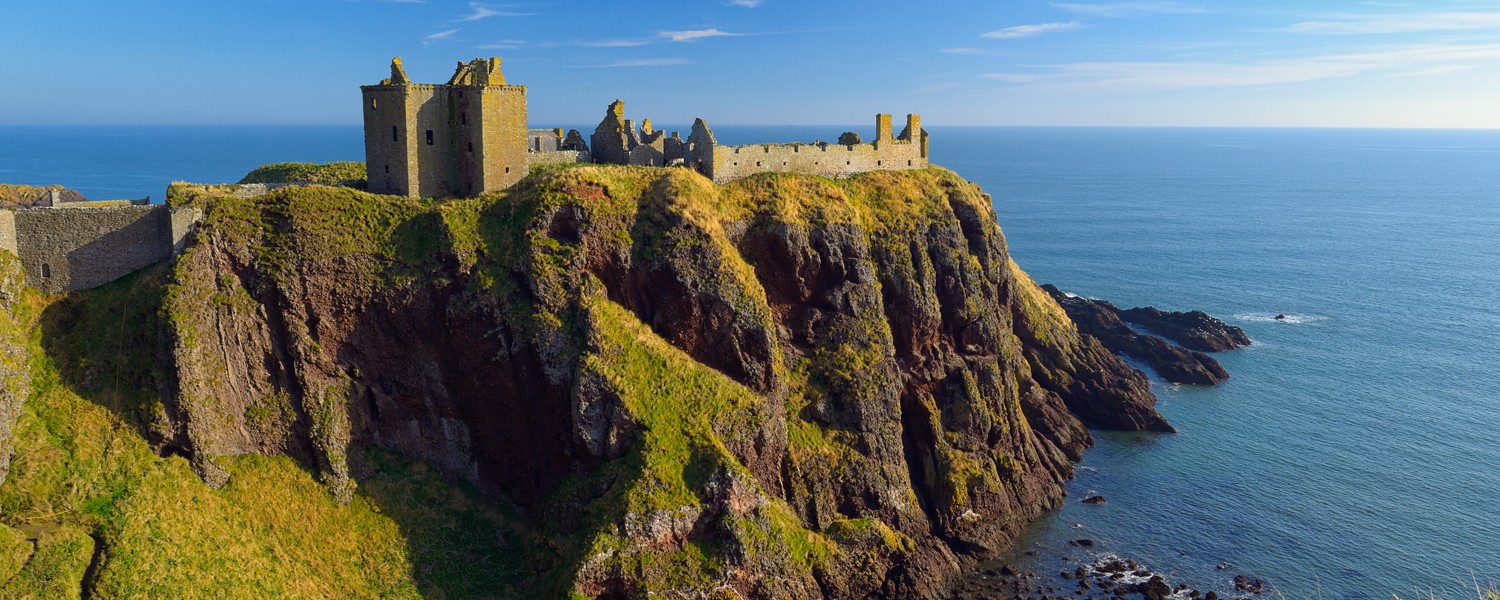
Provided by:
num_skyman/Shutterstock.com

Our travel guides are free to read and explore online. If you want to get your own copy, the full travel guide for this destination is available to you offline* to bring along anywhere or print for your trip.
*this will be downloaded as a PDF.Price
€4,95
The City
The guide was updated:
Built at the mouth of two of Scotland’s major rivers, the Dee and the Don, with the spectacular Grampian Mountains to the west, and miles of unspoiled and beautiful coastline to the east, Aberdeen is a perfect destination for nature lovers. But travellers who would rather stay in urban surroundings will also have plenty to see – despite its northerly location, Aberdeen features splendid architectural delights, a highly cosmopolitan feel, exciting nightlife and a wide variety of cultural sights and events bound to please all.
Early Aberdeen consisted of two settlements: one in what is today known as Old Aberdeen, and another on St Katherine’s Hill near the harbour. Modern Aberdeen began to take shape in the late 18th century on St Katherine’s Hill in a development that featured some spectacular engineering projects. Engineering is still a theme in today’s Aberdeen, following the discovery of oil in the North Sea in 1969, which has earned Aberdeen its modern nicknames, the “Oil Capital of Europe” or the “Houston of the North.” The oil has been highly significant for the development of this thriving city, as it has boosted the local economy, resulting in low unemployment rates and a reputation for being one of the most desirable places in Britain to live and work.
Early Aberdeen consisted of two settlements: one in what is today known as Old Aberdeen, and another on St Katherine’s Hill near the harbour. Modern Aberdeen began to take shape in the late 18th century on St Katherine’s Hill in a development that featured some spectacular engineering projects. Engineering is still a theme in today’s Aberdeen, following the discovery of oil in the North Sea in 1969, which has earned Aberdeen its modern nicknames, the “Oil Capital of Europe” or the “Houston of the North.” The oil has been highly significant for the development of this thriving city, as it has boosted the local economy, resulting in low unemployment rates and a reputation for being one of the most desirable places in Britain to live and work.


